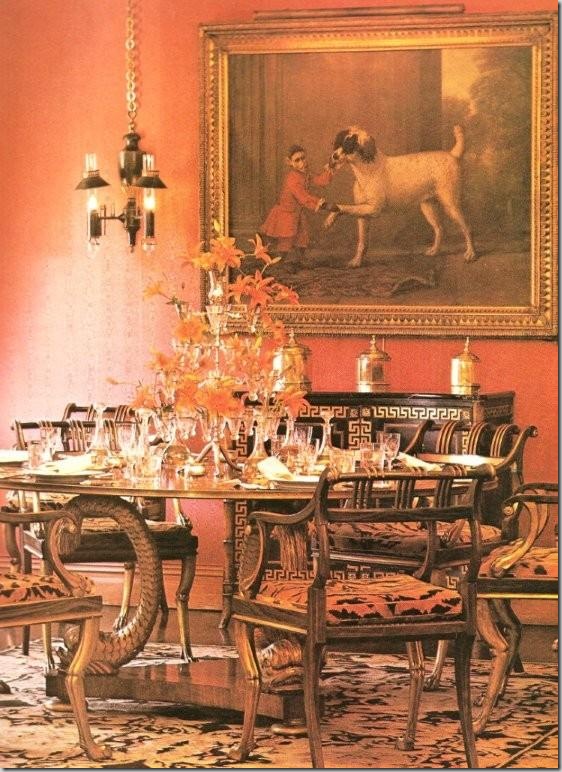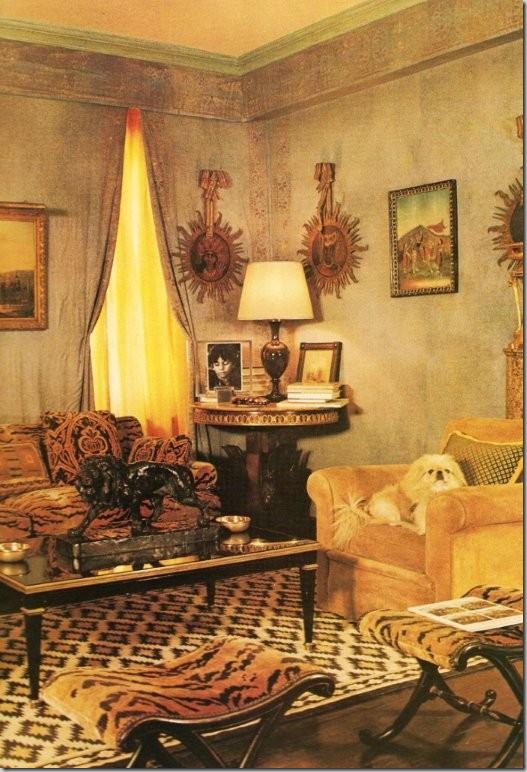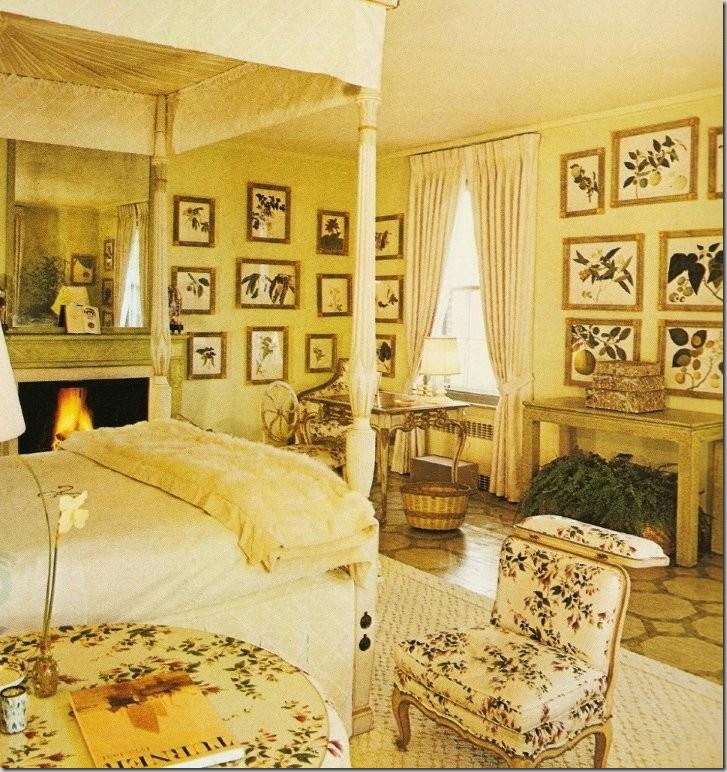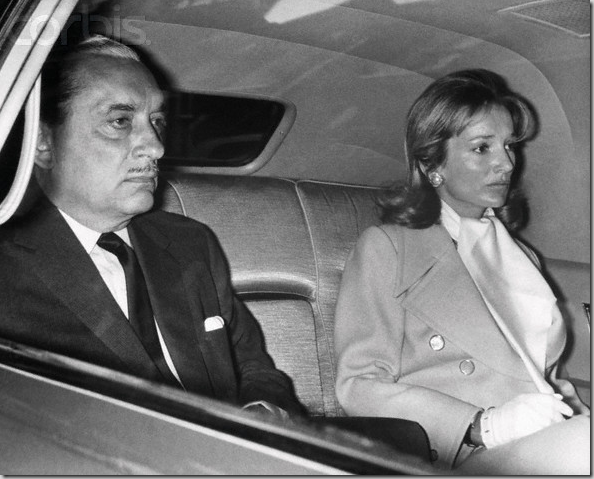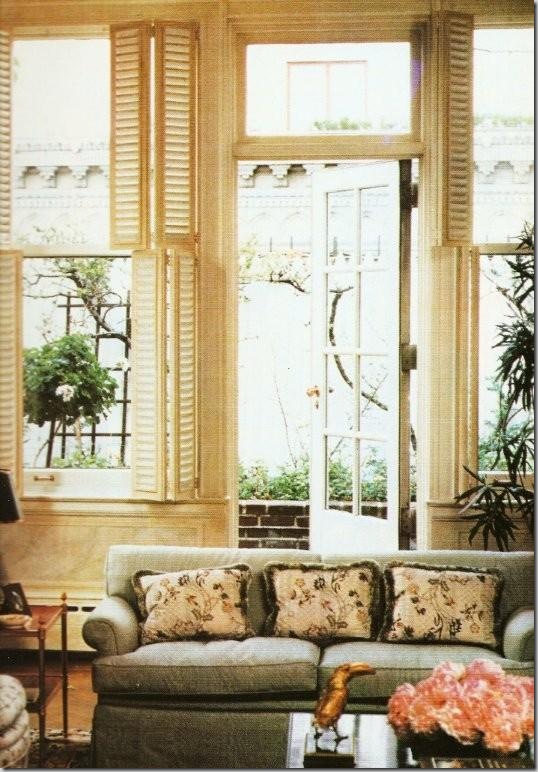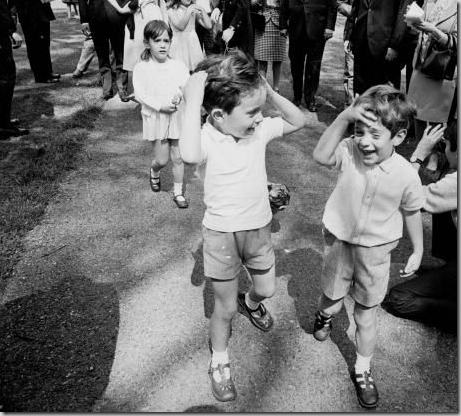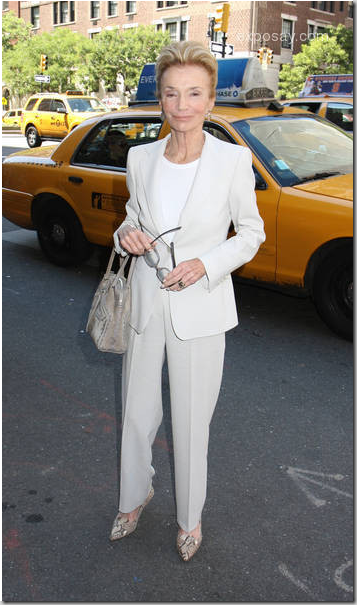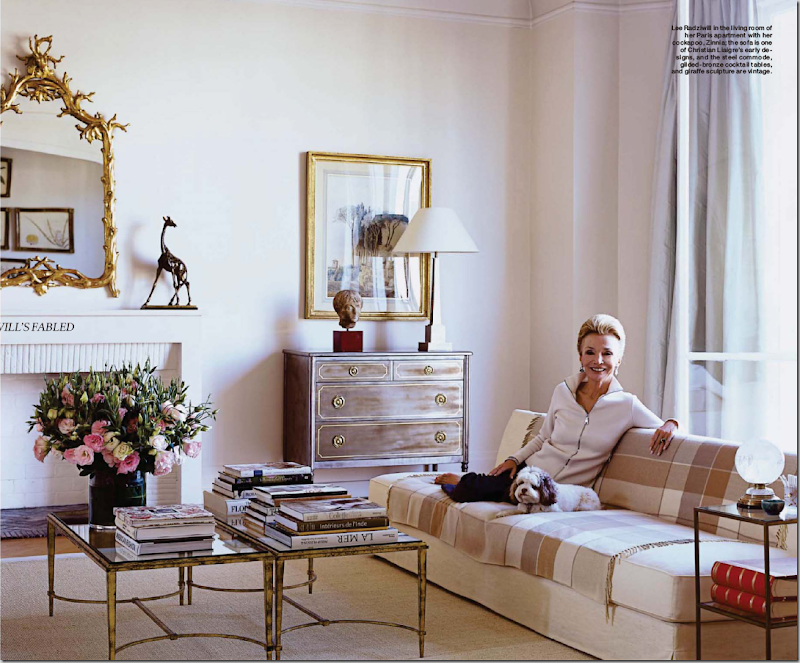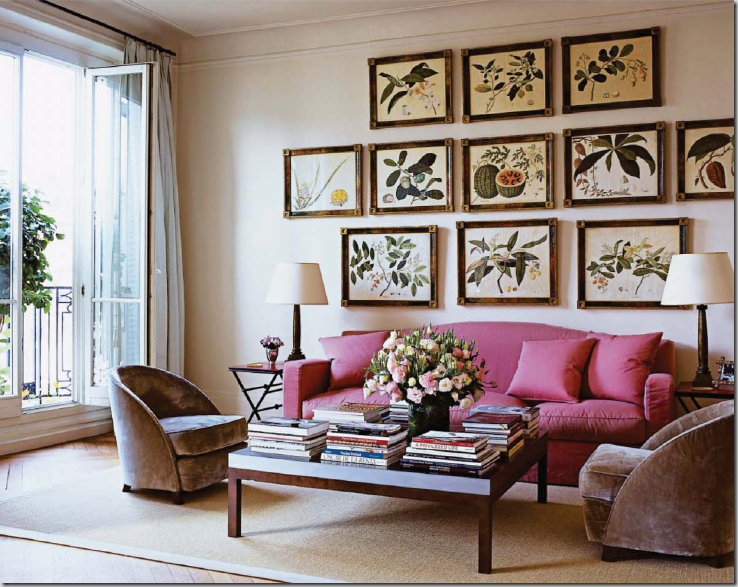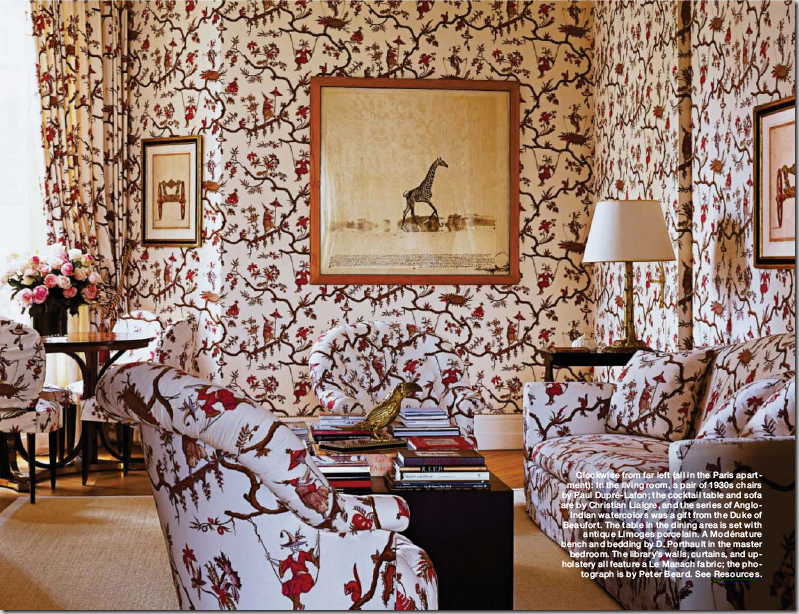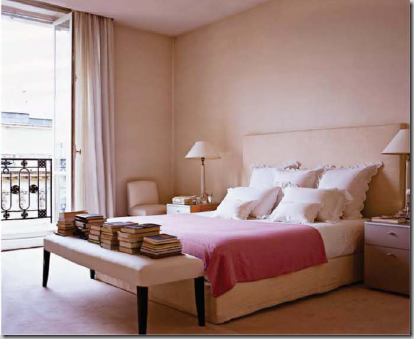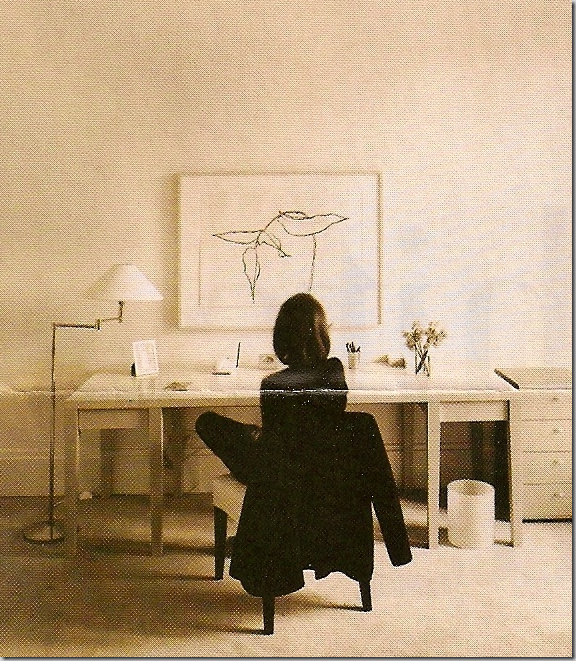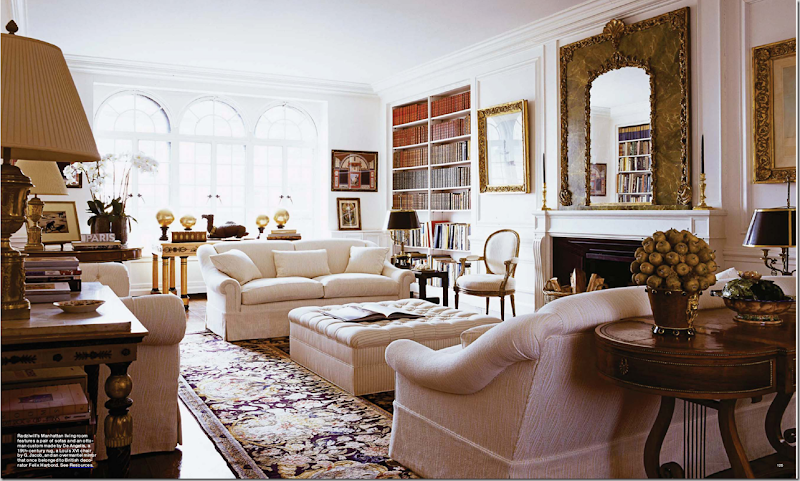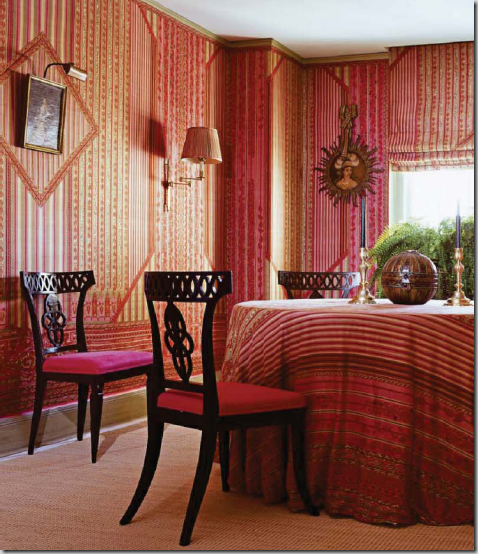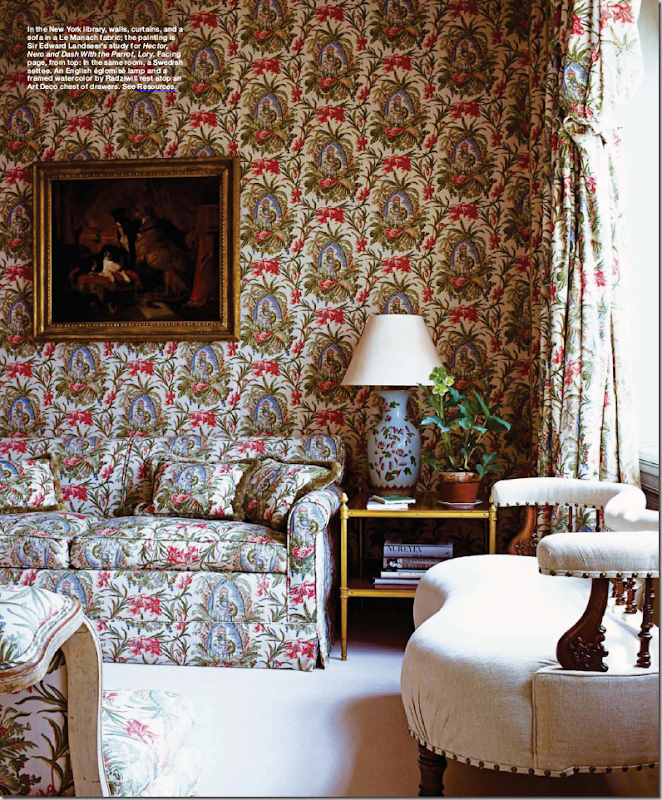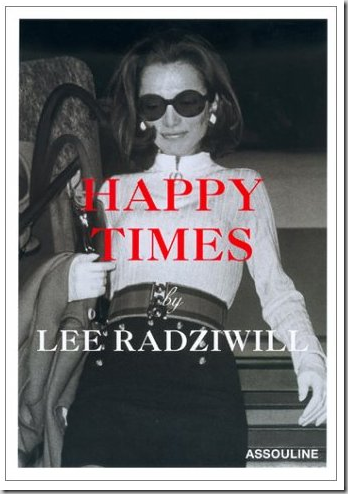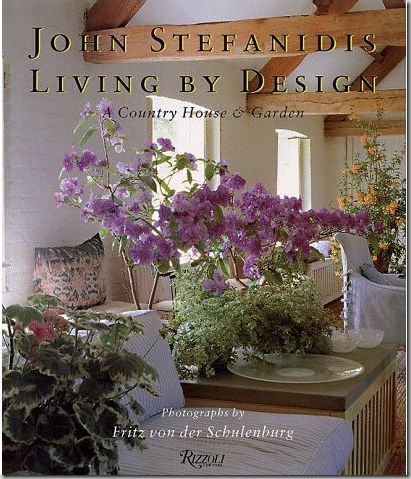Caroline Lee Bouvier, here with her older sister Jacqueline Lee Bouvier. While Jackie looked exactly like her namesake and father John Vernou “Black Jack” Bouvier, III, her baby sister Lee resembled her mother Janet Norton Lee Bouvier Auchincloss. Both girls possess stunningly wide set eyes that are the basis for their great beauty.
This month, Elle Decor magazine features the two cosmopolitan apartments of Lee Radziwill, baby sister to one of the world’s most famous woman, Jacqueline Onassis. Radziwill’s two flats, one in New York and the other in Paris, were a surprise. Pretty and ultra feminine with touches of pink and walls of toile, the homes seem almost simple compared to the Renzo Mongiardino masterpieces Radziwill once lived in. Now in her 70s and single, Radziwill leads a quiet life escaping to Paris when the stresses of New York get too much. Paris’ blooming chestnut trees are another irresistible attraction. The 90s were particularly cruel to Radziwill, when, first she lost her sister to cancer, and then her nephew John Kennedy and his wife died in a plane crash just three weeks before Radziwill’s son Anthony also succumbed to cancer. And if that wasn’t enough, her marriage to director Herbert Ross ended in divorce shortly before he too died in 2001. In the face of all these losses, how did Radziwill respond? She wrote a book, part-diary, part-scrapbook, called Happy Times where she reminisces about all the wonderful, great family events – the vacations, the holidays – her family had shared. There is not one negative word in the memoir, no back-stabbing, no settling of scores. Instead the book is written with grace and class and shows a great strength.
Four years younger than Jackie, Lee writes that she was attracted to the sea, while Jackie, the athletic one, was attracted to horses. They both attended boarding school and after Lee graduated, the two girls went off to Europe together, the first of many great adventures they would share. Jackie of course married the future president John Kennedy while Lee entered into a short marriage that ended in divorce a few years later. In defense of her early ill-fated match, Radziwill says girls married young back then just to get their own apartment, something their mothers would never allow them to do while still single. When time came to marry her second husband, the older, debonair Polish prince, Stanislaw Radziwill, they both obtained annulments for their first marriage, though the Prince was actually on his second! Two children soon followed, a boy Anthony and a girl Christina who perfectly matched their first cousins Caroline and John Kennedy. Caroline was, in fact, named for her aunt – Caroline Lee Bouvier Radziwill - who in turn was named for her great-grandmother, Caroline Ewing Bouvier. The four cousins - Caroline and John and Anthony and Tina - became life-long best friends, just as their mothers were. When Jackie became First Lady, her most trusted confidant was her sister, and together they traveled on both state visits and private vacations.
No. 4 Buckingham Place, the London townhouse of Lee and Stas Radziwill
The Radziwills had two homes in England, one, shown here was at No. 4 Buckingham Place, a stone’s throw from where the Queen lived. Jackie sought refuge in England from the press and here she is seen leaving for lunch with Queen Elizabeth – ironically with the press in hot pursuit. The Radziwills’ other house in the country afforded the family more privacy. Both houses were decorated by Renzo Mongiardino who is considered by those in the business as one of the finest interior designers who ever lived. A brilliant man, romantic and well versed in history, his career started in set design. After Mongiardino worked his magic for the Radziwills, their two houses were thought by many to be the two prettiest in England. Radziwill has been quoted as saying she had Mongiardino at “his best.” Now deceased, Mongiardino’s influence can still be seen in work created by today’s designers.
The great British photographer Cecil Beaton – a close friend of Lee’s took this picture of her in the early 60’s at her London home.
Rare pictures of the First Lady in London after she and her sister visited India. On her left is her courtier Oleg Cassini hamming it up with medals she brought back from the trip. These photos are purported to have been taken in Radziwill’s London home, pre Renzo. Since this is 1961, this may show how the Radziwills lived while waiting for the new decor which was installed in 1965. Looking closely at the fireplace above, it does seem to match the fireplace in the Mongiardino drawing room. Interesting to imagine that this rather bland French room is the same space as the spectacular Renzo ' Turquerie Room.'
The First Lady and Cecil Beaton, the photographer.
Princess Lee Radziwill on the left, and the First Lady – learning how to do the twist!
In London, at #4 Buckingham Place – the famous drawing room by Renzo . He used yards and yards of hand-blocked cotton fabric from India. The room became synonymous with Renzo, and those who could, created their own version of the Turkish Room.
Lee Radziwill in the 'Turquerie Room' of her London home, leaning over a stone lion's head statue.
This picture could hold a clue to where the “Turquerie Room” idea really came from. This is a picture of Jackie Kennedy in her Georgetown house before she was First Lady. Her day bed is awfully similar to what her younger sister created five years later.
Turville.
Besides the London house, Lee and Stas shared a country home, Turville, a 17th century Queen Anne in Oxfordshire. Here is a picture of the cobblestone courtyard around which all the buildings faced, creating its own picturesque village. The buildings seen are actually guest houses - the main house is not really visible here. At the center of the courtyard was a large beech tree with a bench around it for mounting horses. Off to the side of the courtyard was a tennis court and there was both a kitchen and rose garden that was hidden behind peach walls. The walkways were lined with espaliered pear trees that were heavenly when they bloomed in the spring. There was another building, an indoor pool house which was built to resemble the underside of a boat. The story of this house fascinates me and I wish there was a book that documented it, all the changes and additions, and all the outbuildings. But, alas, there wasn’t a market for such stories back in the 60s. The designer John Stefanidis lived in a country house, Cock Crow, that looked very similar to this – outbuildings that connected around a main house and a courtyard. Thankfully, he DID document the creation of his country house in the book Living Through Design, which remains one of my all time favorite design books. An interesting factoid, both Radziwill’s and Stefanidis’ country houses had a ha-ha. I’m not entirely sure what a ha-ha is – some kind of landscaping boundary, but whatever a “ha-ha” is they both share it!!!
Renzo Mongiardino was the designer for Turville and the dining room is considered the most spectacular room in the house. In the New York Times, Radziwill describes the room: ''On the walls, Mongiardino applied Sicilian scarves printed with flowers on a background of blue. Then, over the scarves, his friend Lila de Nobili painted more flowers and, in oval shapes, portraits of Christina and her favorite animals, which included a lot of birds, and for Anthony's portrait there were dogs and horses. It sounds cute, but it wasn't. It had lots of atmosphere. I don't like dining rooms. I think they have too much structure and are too formal. I thought this was magical. Lila de Nobili thought the room had a very Turgenev feeling.''
Close up of Lila de Nobili’s paintings over the scarves.
The entrance hall to Turville had a wonderful fireplace. Radziwill wanted a house filled with flowers and Mongiardino obliged with walls lined with floral fabrics and paper.
The room between the living room and library was another floral filled space that housed birds and parrots.
Another view of the bird room with a wonderful set of botanicals that moved with Radziwill throughout the years. What an arrangement of flowers! I wonder if they always had flowers like this in the house or were they brought in just for the photographer?
The interior designer Mark Hampton created this water color of Lee’s Mongiardino-designed bedroom at Turville. The accuracy is almost like a photograph. Notice the painted floor – this pattern shows up again in different houses of Radziwill.
For Christmas one year the children got a old gypsy caravan – something that many upper crust English country houses shared.
One constant in Lee Radziwill’s life is her love of animals, dogs especially. She says she has never not had a dog. Here, a photo, probably taken in Turville shows her pug and cats.
And a closeup of the urn on the 50 acre property.
At Turville in the early 70s near the end of the Radziwills marriage. Notice at the end of the vista is the urn, barely visible.
One summer the Radziwills rented a villa in Italy and the then First Lady came to visit for awhile. Here the two sisters casually sunbathe, both smoking cigarettes. Jackie was a chain smoker, something she tried desperately to hide from the public. I’ve often wondered if her problems giving birth to children (the miscarriages and stillbirths) were somehow related to her smoking. What a different era it was back then! Imagine today a First Lady summering in Italy without her husband.
When the First Lady went on an official visit to India and Pakistan – she asked her sister Lee to accompany her. Their clothing was a hit of the tour – many of the dresses Oleg Cassini created for the visit ended up in the collection of dresses shown at the New York Metropolitan Museum of Art in 2001. Here, the two are dressed in pink while riding a camel.
Long white leather gloves while riding an elephant are quite an accessory!
Here they both chose a shade of peach and three strands of pearls. How gorgeous are they? Jackie – with white leather gloves looks like a model! Soooo pretty!! No wonder generations of women everywhere admired her sense of style.
Times Change: After the death of JFK, Jackie lived in this house in Georgetown for a short period of time. Here she and Lee leave after touring it with interior designer great Billy Baldwin. Baldwin had been hired to design this house and another house in hunt country Virginia where the Kennedys planned to retire. After the assassination the Virginia house was quickly sold and this Georgetown house was barely lived in. Instead, Jackie bought a penthouse in New York where she lived until the day she died, in her beloved apartment – as her son John said at that time:
"My mother died surrounded by her friends and her family and her books, and the people and the things that she loved. She did it in her own way, and on her own terms, and we all feel lucky for that."
After Jackie moved to New York, Bobby Kennedy approached Stas about him allowing Lee Radziwill to move with the children to New York to keep Jackie company. Stas hated New York, but apparently Bobby was persuasive and the Radziwills took an apartment in NYC on Fifth Avenue. Eventually, the children even went to school in America, not London. Lee called on Mongiardino to help her decorate the apartment – but it is not clear whether he was THE designer, or she was. He suggested the vivid red theme, large Bessarabian carpet and lettuce green taffeta curtains – which unfortunately do not show up good in these pictures. The beautiful mirror above the fireplace mantel remains with Lee today and is in her present NYC apartment. The drawing room was very large and at the center were two sofas, back to back. Notice the painted red and black crown molding and baseboards. The bouillotte lamps show up in Radziwill’s current NYC apartment.

The room was punctuated with black accents – such as this gorgeous chest. Here you can see the two sofas – Lee put a piece of textile over the backs of the sofas.
Radziwill says that she likes to start designing a room by getting the rug first. Here, the Bessarabian rug that Renzo Mongiardino chose for the penthouse.
The dining room with silk moiré walls and a charming painting. The table and chairs are both Regency.
The library, with the silk velvet tiger upholstery. I wish these pictures were better so we could see the actual colors. The round medallion paintings show up again in Radziwill’s current apartment.
The master bedroom is a complete departure in this apartment – she wanted it to have a lighter feel. Notice the floor pattern is the same as it was in her country home in England. Painted floors like this are having something of a resurgence today. Recently, Mary McDonald painted the floors in her Los Angeles house in a similar graphic manner. Radziwill’s bedroom is more country French than the Regency inspired public areas of the apartment.
Throughout the years, Radziwill has worked at many different jobs. She was briefly an actress, she worked in public relations for Armani, and in 1972 she and her best friend Truman Capote toured with the Rolling Stones. Here, pictured in her bedroom, in 1976, she announced she was an interior design consultant, working out of her Fifth Avenue duplex.
Happy Times: 1966, Lee and Truman Capote at his famous White and Black Party. The two were best friends for years, though at the end of his life, they were no long speaking. Other great friends included Andy Warhol and his gang and the ballet sensation Rudolf Nureyev who actually lived with the Radziwills for a time.
SAD TIMES: Stanislaw Radziwill and his wife Lee, seen traveling to America in 1968, for the funeral of Robert F. Kennedy. Earlier that same year, Jackie had married Greek shipping magnate Aristotle Onassis, a move which shocked most Americans. In truth, insiders knew that the two sisters had been connected with Onassis for quite some time. In several books, it was alleged that Lee was the sister most intimate with Onassis. After the death of her newborn son Patrick, Jackie – at Lee’s urging – joined her and Onassis on a cruise around the Greek isles. The cruise started just a few weeks after the tragedy of Patrick’s death and it was then that Onassis shifted his gaze from Lee to her older sister Jackie. Once the cruise was over and she returned back to Washington, Jackie did not appear at a public function until a few months later in November – on that fateful trip to Dallas. Four years later, she and Onassis were married. Onassis, a victim of much family tragedy too, died seven years later, and some say, it was just before he was planning on divorcing Jackie. She never remarried, but did spend the last years of her life in a committed relationship with Maurice Tempelsman, which many say was the first mutually respectful relationship she had experienced.
Lee’s marriage to Stas officially ended in 1974. Later that year, she almost married again, but left her groom at the altar, 5 minutes before the ceremony. Throughout the years, Lee had suitors – a long standing one was Peter Beard, the handsome photographer. After her divorce from Stas, Lee left the Fifth Avenue duplex for this smaller Park Avenue apartment. The ambiance of the two apartments could not have been different – Lee said that the Park Avenue apartment reminded her of Turville, with its sunny terraces and flower drenched rooms. Her children were now grown and she says that she missed them terribly.
Much of the furniture from the Fifth Avenue apartment made its way to Park Avenue. Here the same dining room table and chairs look completely different in the sunny apartment. The gorgeous botanicals are seen again, hanging here.
In 1998, Lee takes her third husband, the handsome widower and prolific movie director Hebert Ross (Funny Girl, Steel Magnolias, The Turning Point). Here the happy couple arrive at Jackie’s apartment for their wedding reception. Not too long after, tragedy starts to strike again and again.
Lee, shown at Jacqueline Lee Bouvier Kennedy Onassis’ funeral – in 1994.
Five years later – these two little boys, who were more like brothers than cousins would both be gone. John Kennedy Jr and his wife Carolyn and her sister were killed in a plane crash. What the world didn’t know was that Lee’s son Anthony was in the last stages of terminal cancer. Three short weeks later, he too would be gone.
Lee and her husband Herb Ross at John and Carolyn’s funeral. Three weeks later, her son would die too. The two couples, John and Carolyn and Anthony and his wife Carole were all the best of friends. After the tragedies, Carole Radziwill was left alone having lost her three best friends. A few years later, she wrote the book “What Remains” a heartbreaking tale of their four lives. The book portrayed Lee as a thoughtful and loving mother who handled adversity with grace and strength. In 2001, she and Ross divorced shortly before Ross himself unexpectedly died.
Today, Caroline Lee Bouvier Canfield Radziwill Ross is a beautiful woman, devoted to her daughter Tina and her niece Caroline and her dogs! She divides her time between Paris and New York.
Elle Decor recently published her two apartments: in Paris, she lives in a small flat bathed in sunlight. The apartment is filled with white and touches of pink. The sofa is a early Christian Liaigre and the two commodes are steel. Simple seagrass covers the wood floors which are not stained and were left unfinished, so that they feel “sandy.”
The other side of the drawing room is awash in pinks, flowers, and books. The traveling botanicals, a gift from the Duke of Beaufort, have made their way back across the Atlantic to Paris. Aren’t they stunning?
The library is beautiful, completely upholstered in Le Manach fabric! Fabulous!!!! The photograph of the giraffe is by Peter Beard. Apparently her bedroom in NYC is also completely upholstered in the same Le Manach fabric.
The bedroom is simply furnished, her books become the focal point. The walls give off a soft pink glow, but the blanket really ties the apartment all together.
Not from the Elle Decor shoot, this photograph is of her Paris apartment bedroom where her desk is.
In New York, all the red and fancy interior design has been toned down. The living area is calm, white, and classic. The antiques are superb, the French chair next to the fireplace is signed Jacob. Recognize the mirror, the black tole bouillotte lamps, the Bessarabian rug?
The dining room is fabriced in reds and pink, slightly like the original Renzo Turkish living room in London. The chairs are 19th century and the fabric is an Italian silk. The picture next to the window came from the library on Fifth Avenue. The pinks ties the New York apartment to the Paris one – making the transition easier.
The sitting room is a stunner in pink and white stripes by Rubelli. The day bed was designed by Radziwill. Notice the beautiful tufted chair by the window and the sumptuous curtains. Gorgeous!
The New York library is, like in Paris, completely done in a Le Manach toile. Notice the book – Nureyev! The settee is antique Swedish.
Recognize the small chair next to the desk? It was in Radziwill’s Fifth Avenue coop’s bedroom.
Today, what occupies Radziwill’s free time? She is taking watercolor lessons. Examples of her work, above, are placed throughout her apartment.
Happy Times, her short and sweet memoir, half scrapbook, half biography. In it, Radziwill remembers only the good times. She has a remarkable ability to be a positive person, to focus on the good, not the sad, then she moves on and keeps going. The book has not one negative word about anyone or anything that she has had to endure throughout her life. It’s a fun, easy read, full of pictures of the happy times from her life. Available here.
What Remains by Radziwill’s daughter in law, Carole Radziwill recalls the events leading up the summer of 1999 when her three best friends all left this earth within a few short weeks of each other. Tragic and unbelievably sad, it is very well written - surprisingly so for a first time author. It’s a quick, short read, and one that I HIGHLY recommend. Available here.
And finally, interior designer John Stefanidis’ account of the rebuilding of his country estate in England. Something about his property reminds me of Turville. Living by Design available here.
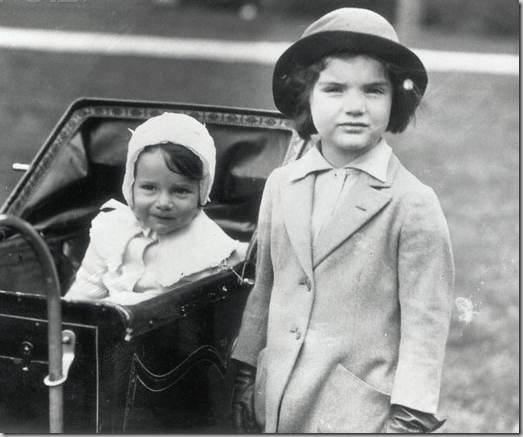

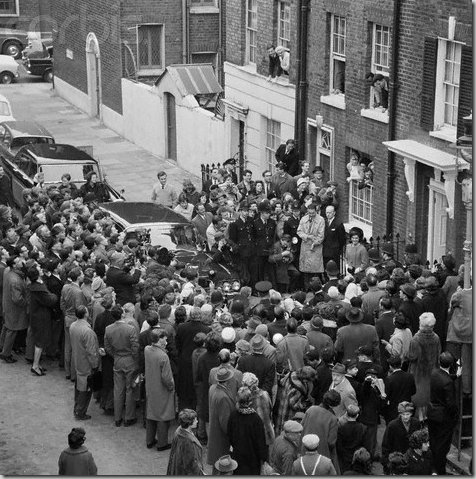
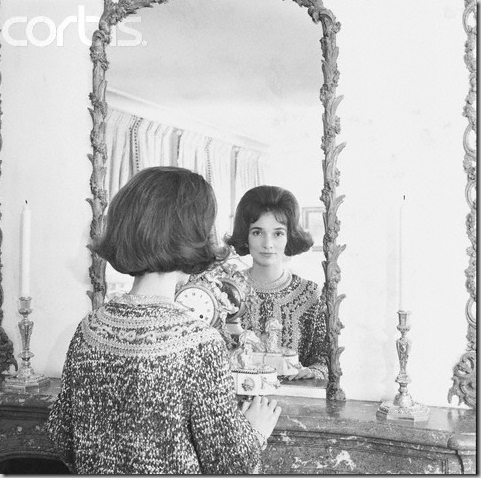


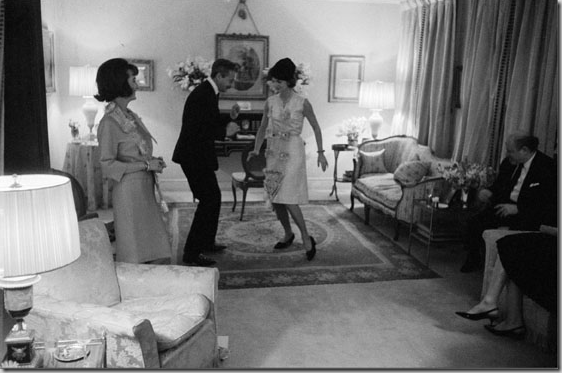
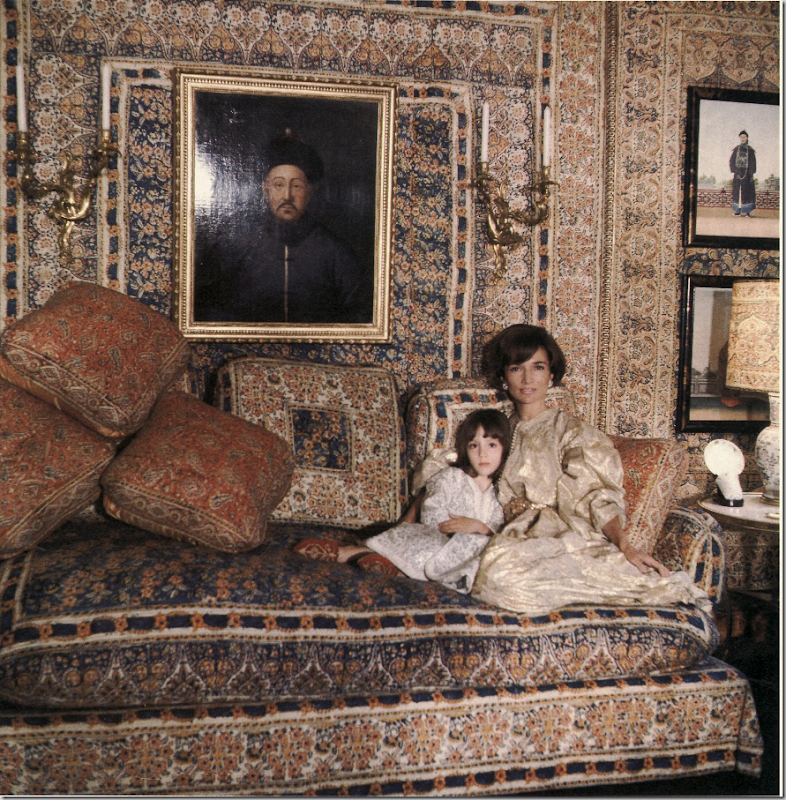
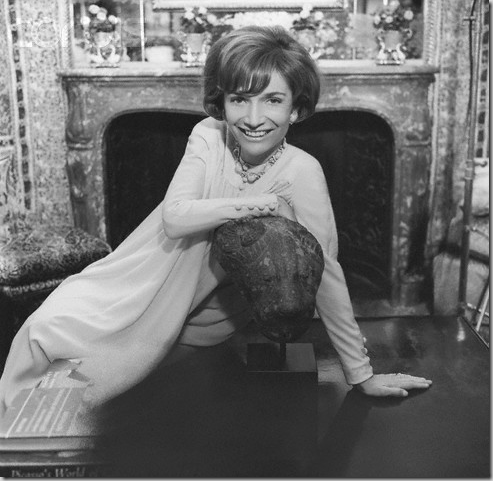
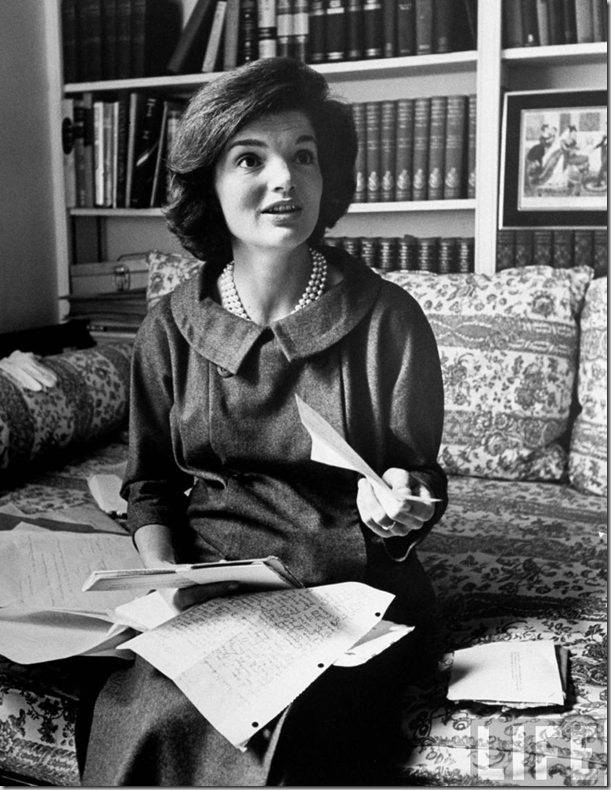

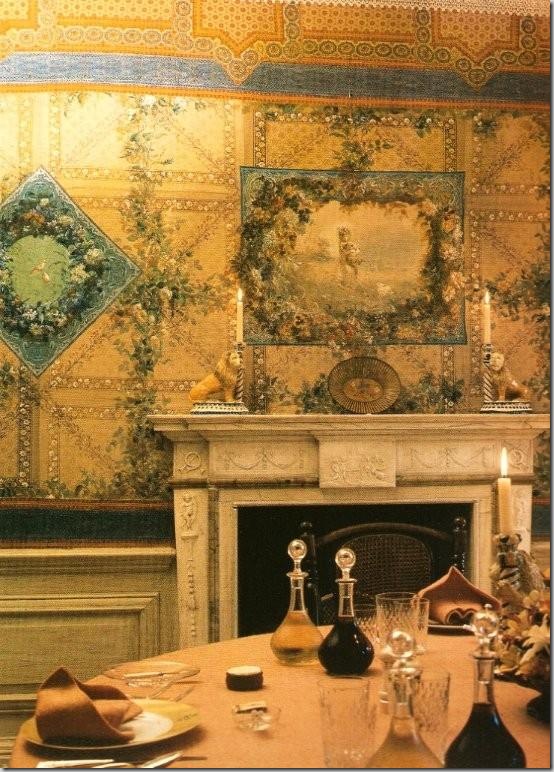
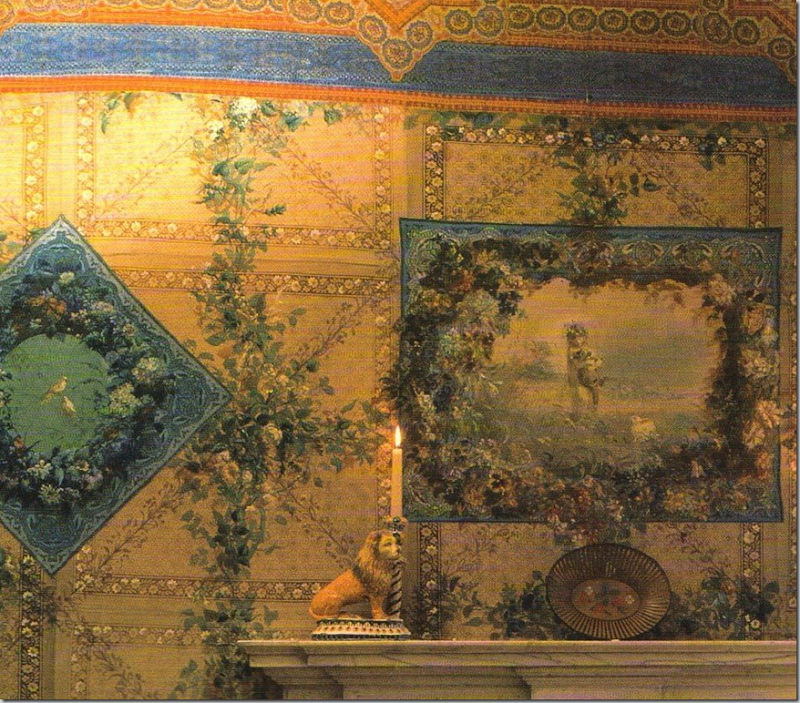
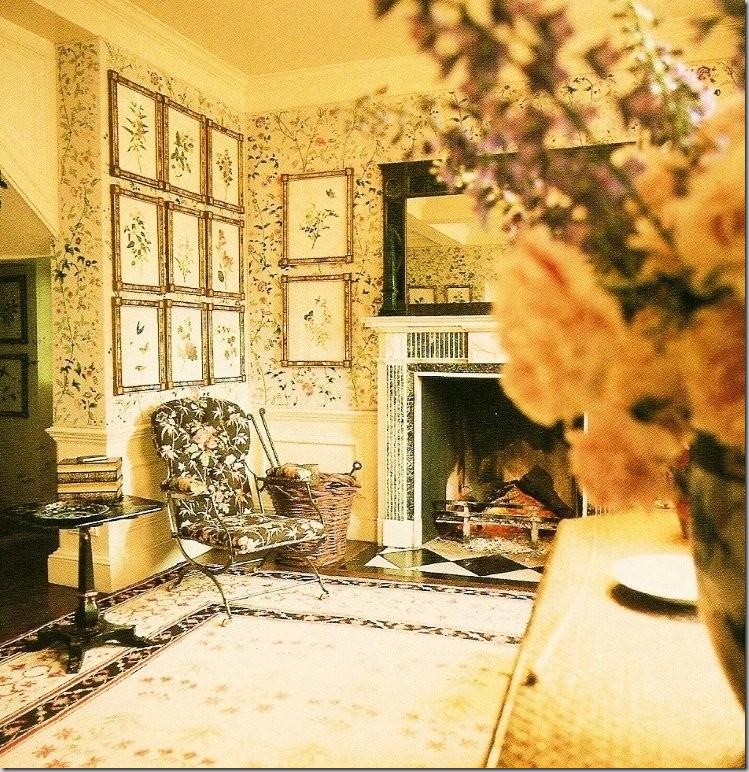

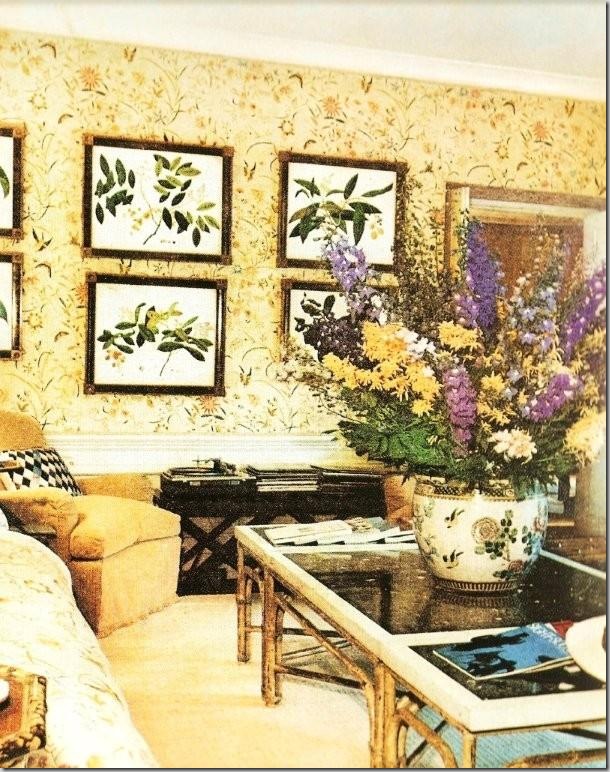
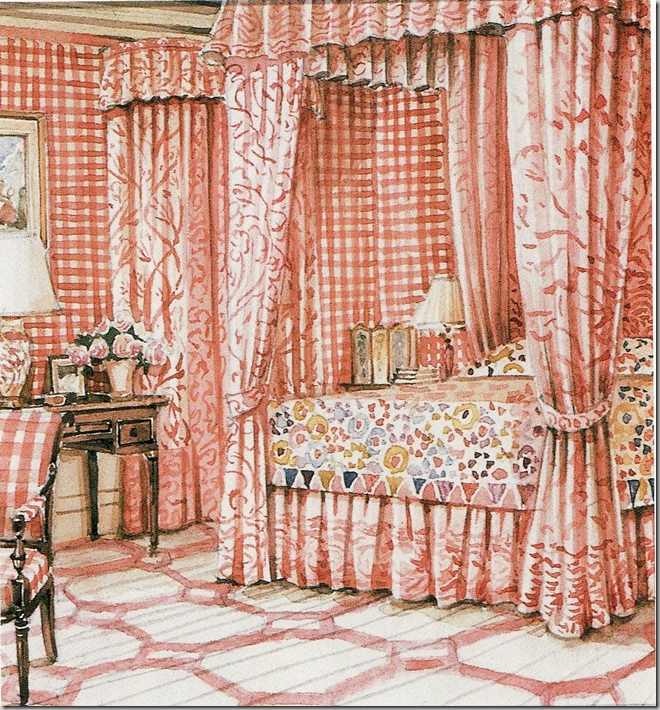
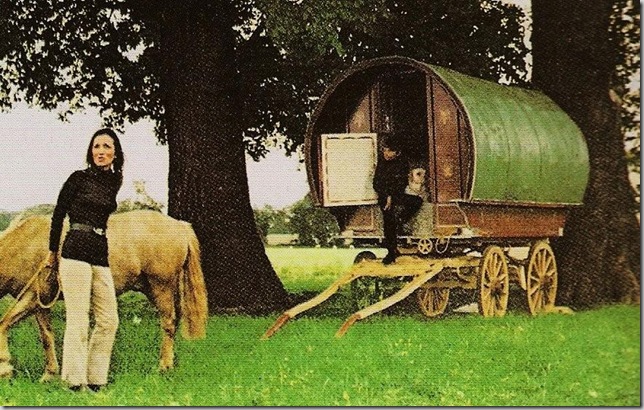
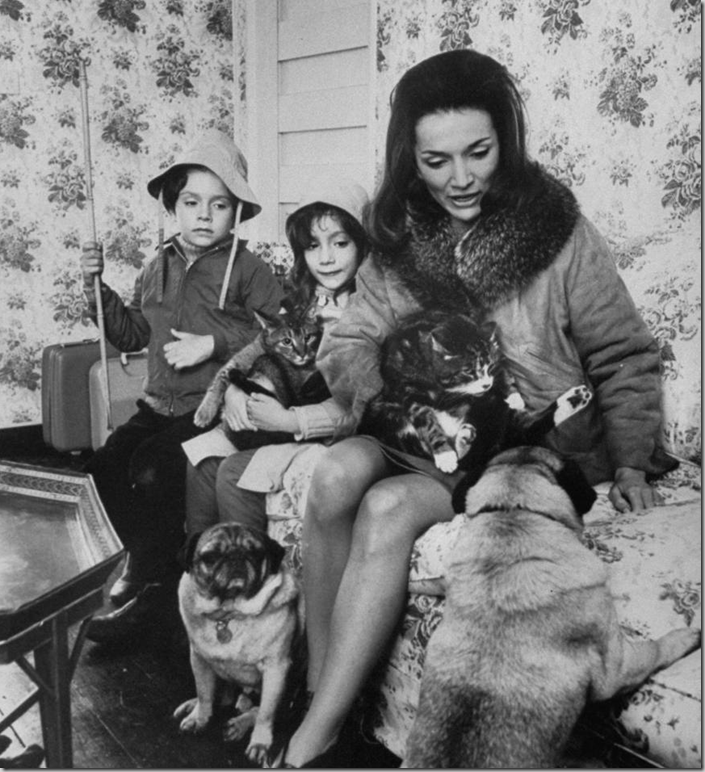
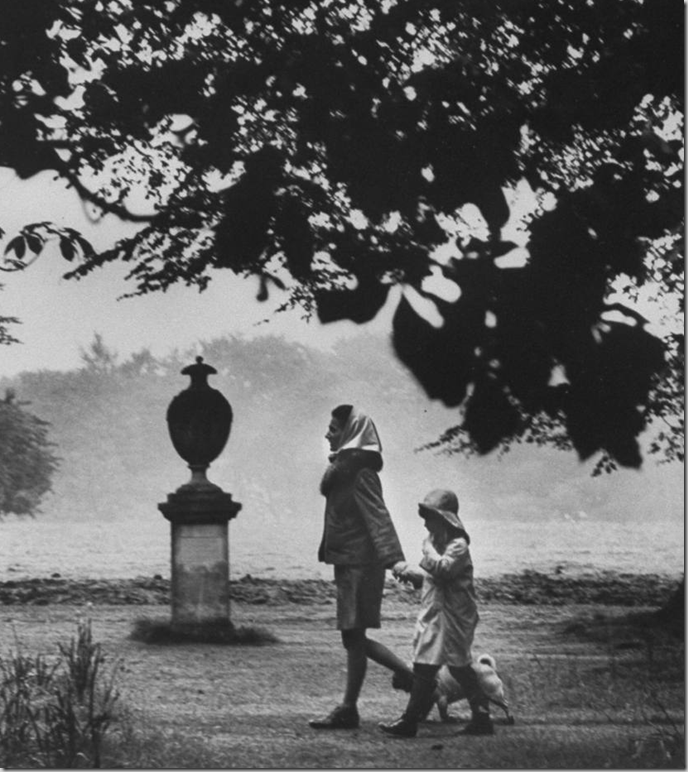
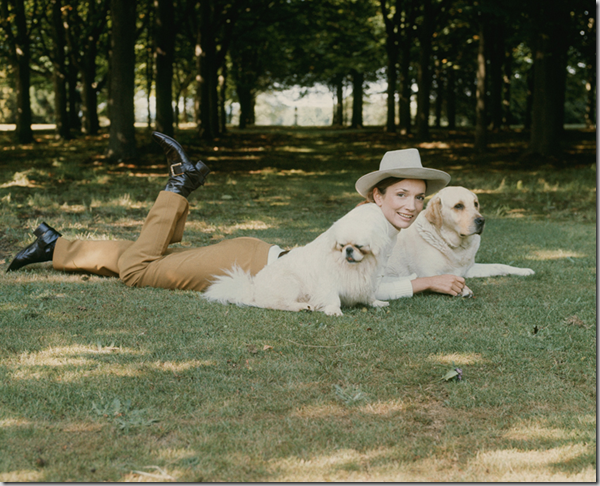


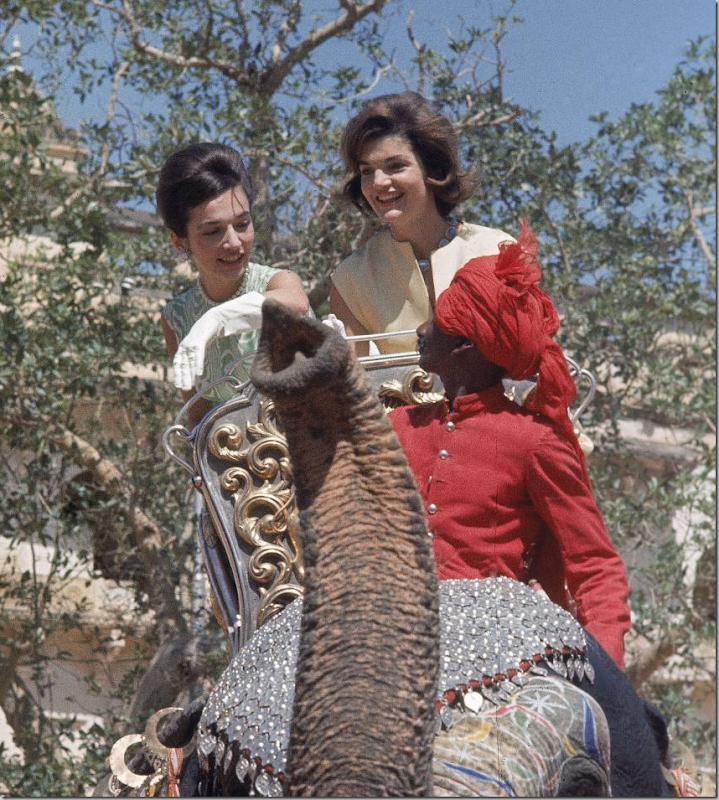
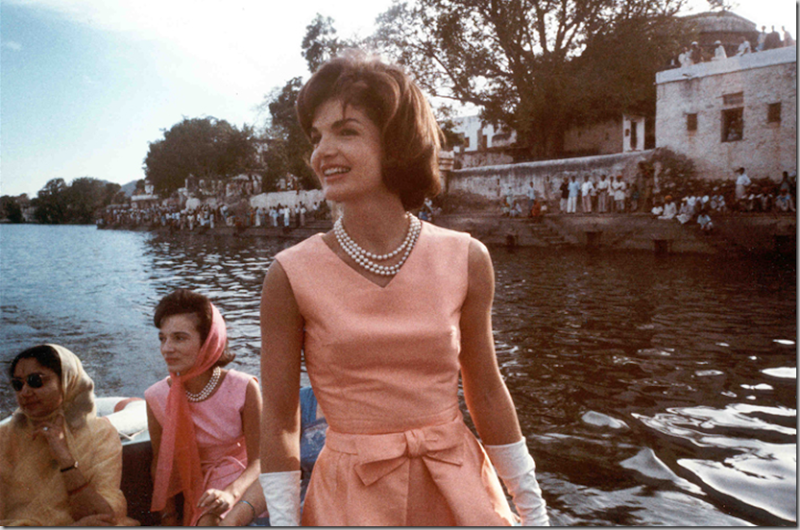
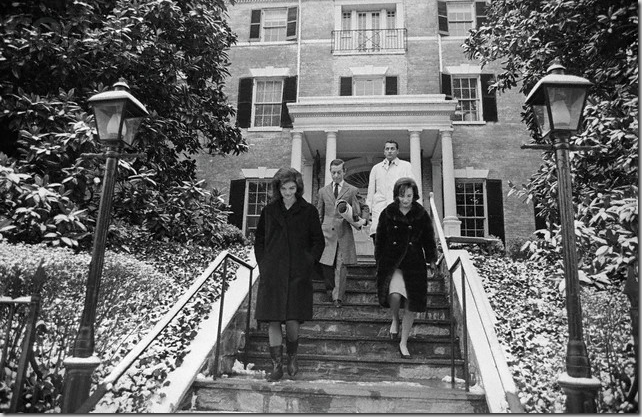

![scan0014a[1] scan0014a[1]](http://lh6.ggpht.com/_t8-Y4w1UKrc/SdXz9MrgqpI/AAAAAAAAXiM/inztJbTV9IY/scan0014a%5B1%5D_thumb.jpg?imgmax=800)
